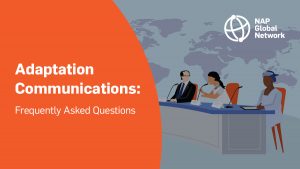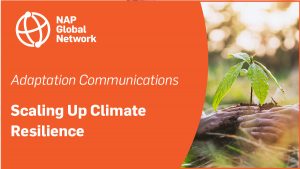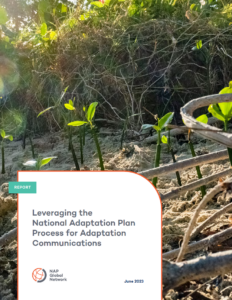These resources from the NAP Global Network and links to other relevant sources provide background information and tools relevant to the NAP process.

Adaptation Communications: Frequently Asked Questions
by Anne Hammill and Christian Ledwell, NAP Global Network Secretariat

Discover the latest trends and key information in National Adaptation Plans from around the world.

